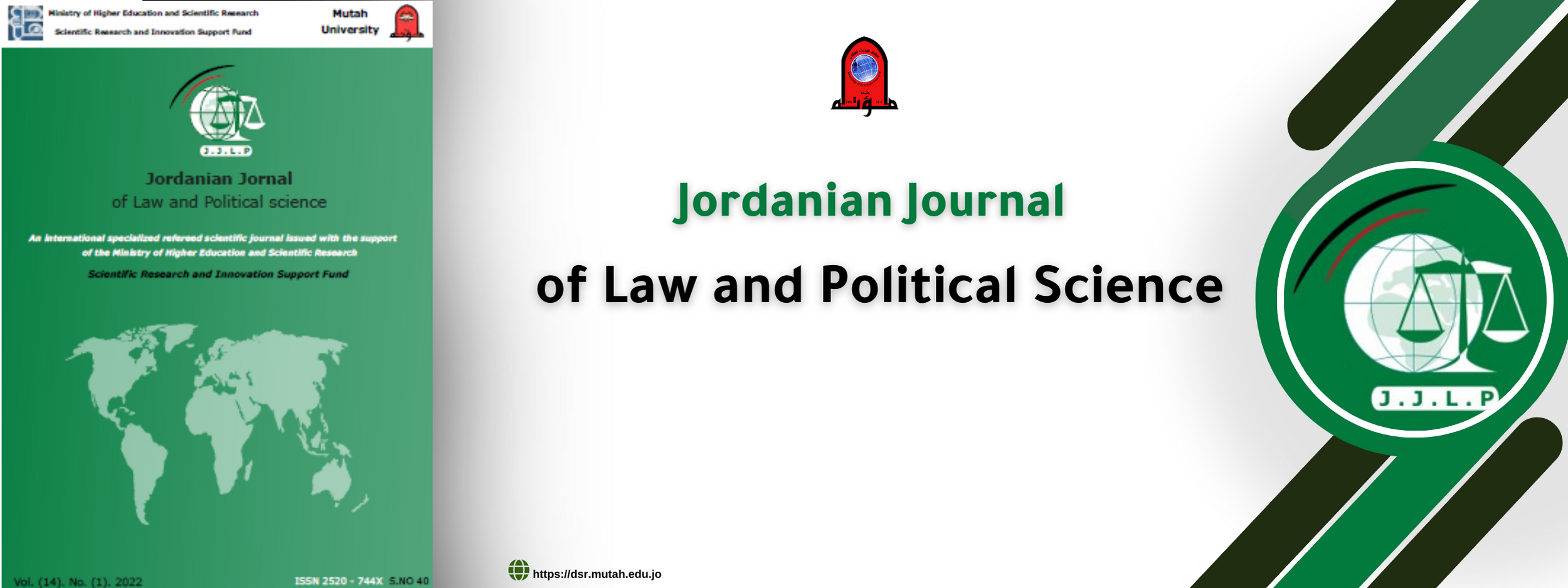Joint Commitment in the Jordanian law
Applied Comparative Study
DOI:
https://doi.org/10.35682/jjlps.v15i3.497Keywords:
solidarity, - Collective responsibility, multiple debtors, multiple creditorsAbstract
This study shows the nature of the association's commitment and investigates its concept, rules, and conditions. The study discusses the distinction between it and comparable systems, particularly solidarity and indivisible obligations.
The study concludes that joint commitment is a civil legislative mechanism aimed at guaranteeing the debt to the creditor in the face of debtors who are not bound by any interest, contract, or law. They may arise due to the absence of agreement or provision for solidarity. The damage caused to the injured party or creditor resulted from the debtors' act, even without their intention to cause the damage. It shall be a reason to join their financial liabilities to be a guarantee for the creditor. The creditor is also entitled to refer to each according to their share of the damage, and they are also entitled to refer to one of them with all the damage with the latter's right to replace the creditor and recourse against the combined debtors for what they paid above their share.
The study concludes by cementing the independence of the joint commitment and its importance in practical life through the statement of its forms, and we wish our Jordanian legislator to pass such a law because it raises many problems at the practical level to reach stability in transactions and jurisprudence.







